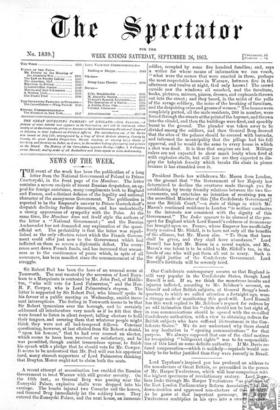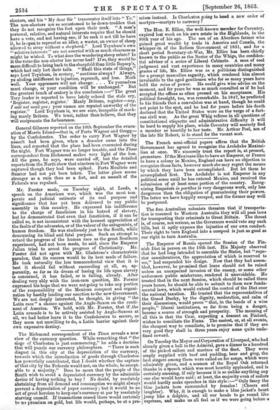Lord Teynham's inspired pen has produced an address to the
non-electors of Great Britain, as personified in the person of Mr. Harper Twelvetrees, which will bear comparison with ti.c highest specimens of revolutionary oratory. Lord ham looks through Mr. Harper Twelvetrees "as lb the East London Parliamentary Reform Associati down-trodden and oppressed non-electors of t As he gazes at that important personage, Twelvetrees multiplies in his eyes into a swa electors, and his " My dear Sir " transmutes itself into " Ye." The non-electors are so accustomed to be down-trodden that they do not recognize the foot upon their neck. "A man's personal, relative, and natural interests require that he should have a vote, and not having one, if he seek it not till he have it, he is open to reproof as an idler, a waster, an owner of sheep allowed to stray without a shepherd."Lord Teynham's own " relative interests " are not asserted with as much clearness as might be wished. To what does the wandering sheep relate? Is it the votes the non-elector has never had? If so, they would be more difficult to bring back to the sheepfold than little Bopeep's, which had only lost their tails. "Shall this state of things," says Lord Teynham, in ecstacy, " continue always ? Always, ye abiding indifferent to injustice, reproach, and loss. Mark well. Your oppressors will not change. . . . Ye yourselves must change, or your condition will be unchanged." But the greatest touch of oratory is the conclusion :—" The great Tory leader is reported to have lately echoed the stale cry, 'Register, register, register.' Manly Britons, register—nay, I will not mock you; your names are reputed unworthy of the register." Lord Teynham is, we are sure, incapable of mock- ing manly Britons. We trust, rather than believe, that they will reciprocate the forbearance.































 Previous page
Previous page